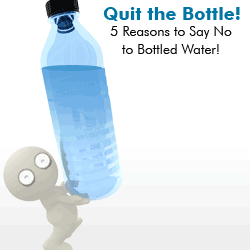
Have you ever taken a close look at bodybuilder's muscles? As large and impressive as their physiques are, the muscles cannot get that big without the help of water.
| If you want to build muscle, you must keep your body well hydrated. |
Water is the most critical nutrient for health, growth, and development. Although water does not provide energy in the same way carbohydrates and fat do, it makes up around 65% of our body weight and plays a very important role in energy transformation as water is the medium in which all energy reactions take place. Therefore, you need to drink a lot of water for health, stamina, fuel, and building muscle. Drinking water for health is an important aspect of building muscle.
But how is so?
Water is everywhere in your body, sort of like a river flowing through your arteries, veins, and capillaries carrying nutrients to your cells and transporting waste out of the body. Water basically fills every space in your body and helps form the structures of protein and glycogen. In order to move muscle, you need water. Muscle is considered an active tissue and water is found in the highest concentrations of inactive tissue.
If your body is dehydrated, chances are you're not going to have a very productive weight lifting session. Why? Your muscles are deprived of electrolytes. Muscles are controlled by nerves. The electrical stimulation of nerves and contraction of muscles are the result of the exchange of electrolyte minerals dissolved in water. It's essential that you drink water for health and build muscle. Without enough water, your muscles are not getting enough electrolytes. Your muscle strength and control will be weakened. Water also helps out with the lubrication of your joints. Water is an ingredient in the makeup of the synovial fluid, which is the lubricating fluid between your joints. If your weight-lifting diet is lacking in water, even for a brief period, less fluid is available to protect these areas. As you add more weight and stress to your body, the demands from weight lifting on the joints will increase. Adequate protective fluid is essential for optimum performance and to give longer life to your joints.



